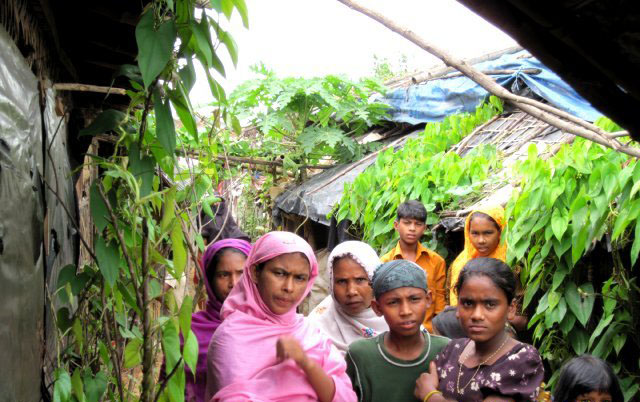Myannmar’s ethnic cleansing escalates to new heights
The Rohingya have fled en masse after an intensified campaign led by the state in response to militant activity.
Myanmar is predominately Buddhist and ethnic Bamar. Its comprising portions of minorities are subjugated to state sponsored discrimination including barred voting rights and denied citizenship. The peak elevation of this is that nationalist Buddhist vigilantes alongside the state have targeted the Rohingya in a violent bid for territorial dominance. The state does not recognize the Rohingya as citizens but migrants from Bangladesh. A citizenship law was passed in 1982 that denied residence to Rohingya unless proof of ancestral linage dating back pre-independence was presented.

Rohingya refugees stand by their homes
An exodus of Rohingya out of Rakhine state into Bangledash has spotlighted this plight onto the international stage. An estimated 300,000 have reached the Bengali border and even more are en route. Myanmar authorities cite the motives for intensified crackdowns as the result of Rohingya militants. Reports have leaked describing helicopters indiscriminately targeting civilians with gunfire, soldiers burning villages, and systematic rape.

Aung San Suu Kyi greeting supporters
Aung San Suu Kyi, the de facto leader and state counsellor recognized by the Nobel Peace Prize committee for her advocacy against the former military junta, has received social pressure for her differed stance on the Rohingya crisis. She herself was a confection pieced during the military junta; a narrative that had cast her affectionately in the eyes of her constituents and foreign onlookers as the antithesis to a polarizing evil. However it is no longer an ensemble of supporting protesters at her door but an ensemble of people spanning globally that now protest against her. A petition has collected thousands of signatures calling for the revocation of her Nobel peace prize.
Fading memories of a people’s existence is written into history as widespread killing is observed in existential form. The continuity of undisturbed violence leads the fate of the Rohingya much to an inevitable transition into the contingency of becoming “living ghosts”.